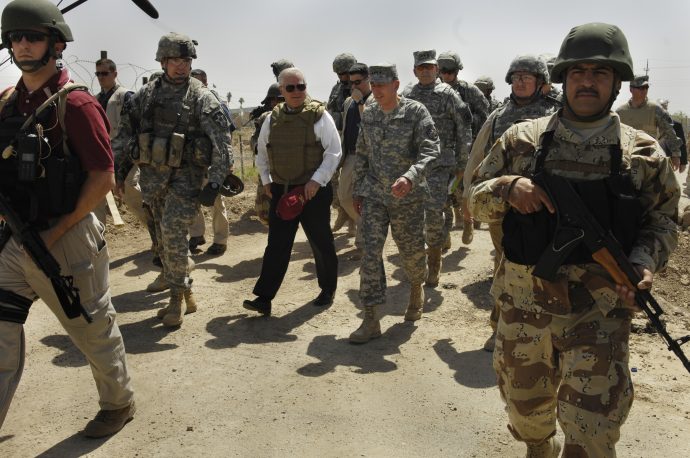Here’s what I’m calling “part 2” of a two-article combo by Victor Davis Hanson that cover the fundamentals of Republicans’ and conservatives’ biggest failure in the information war. Everyone needs to read both parts in full — but the truth is, our GOP presidential candidates aren’t even doing so! Here’s VDH:
The United States has targeted a lot of rogues and their regimes in recent decades: Muammar Gadhafi, Saddam Hussein, Slobodan Milosevic, Mohamed Farrah Aidid, Manuel Noriega and the Taliban.
As a general rule over the last 100 years, any time the U.S. has bombed or intervened and then abruptly left the targeted country, chaos has followed. But when America has followed up its use of force with unpopular peacekeeping, sometimes American interventions have led to something better.
The belated entry of the United States into World War I saved the sinking Allied cause in 1917. Yet after the November 1918 armistice, the United States abruptly went home, washed its hands of Europe’s perennial squabbling and disarmed. A far bloodier World War II followed just two decades later.
It may have been wise or foolish for Presidents John F. Kennedy and Lyndon Johnson to have intervened in Vietnam in 1963-1964 to try to save the beleaguered non-communist south. But after 10 years of hard fighting and a costly stalemate, it was nihilistic for America to abandon a viable South Vietnam to invading communist North Vietnam. Re-education camps, mass executions and boat people followed — along with more than 40 years of communist oppression.
The current presidential candidates are refighting the Iraq war of 2003. Yet the critical question 13 years later is not so much whether the United States should or should not have removed the genocidal Saddam Hussein, but whether our costly efforts at reconstruction ever offered any hope of a stable Iraq.
By 2011, Iraq certainly seemed viable. Only a few dozen American peacekeepers were killed in Iraq in 2011 — a total comparable to the number of U.S. soldiers who die in accidents in an average month.
The complete withdrawal of all U.S. troops in December 2011 abruptly turned what President Obama had dubbed a “sovereign, stable and self-reliant” Iraq — and what Vice President Joe Biden had called one of the administration’s “greatest achievements” — into a nightmarish wasteland.
…
Donald Trump has rightly reminded us during his campaign that Americans are sick and tired of costly overseas interventions. But what Trump forgets is that too often the world does not always enjoy a clear choice between good and bad, wise and stupid. Often the dilemma is the terrible choice between ignoring mass murderer, as in Rwanda or Syria; bombing and leaving utter chaos, as in Libya; and removing monsters, then enduring the long ordeal of trying to leave something better, as in Afghanistan and Iraq.
The choices are all awful. But the idea that America can bomb a rogue regime, leave and expect something better is pure fantasy.
Read more: VictorHanson.com
Image credit:

